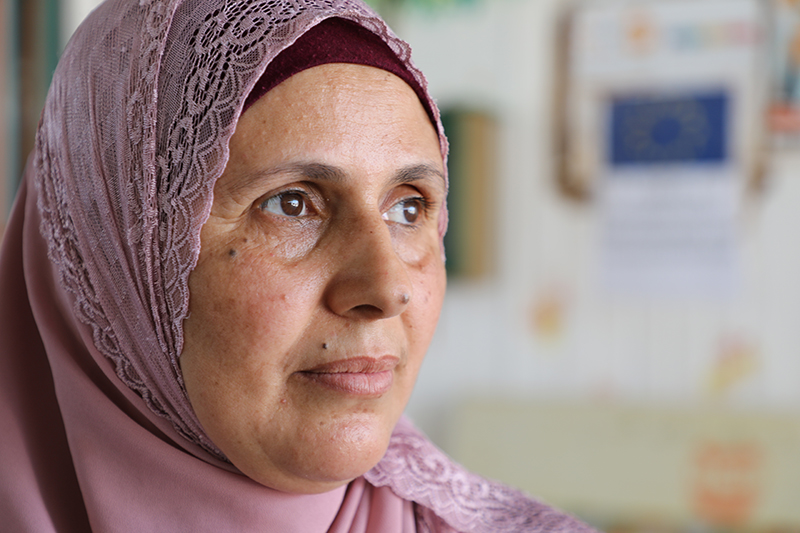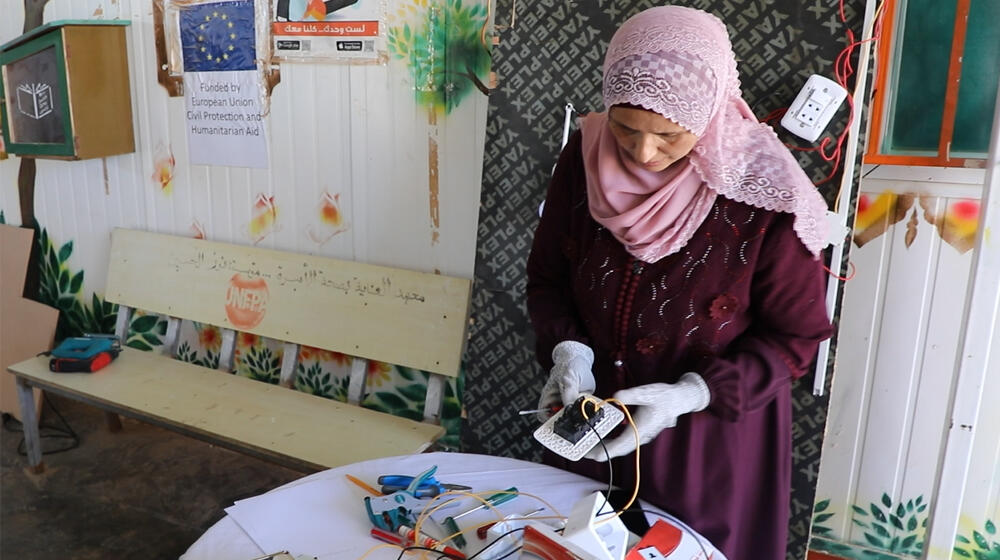In the heart of the Zaatari camp in Jordan, amidst the harsh and dusty conditions, a story of unwavering strength and determination was unfolding. Fathiya Al-Nabelsi, a 37-year-old Syrian woman, found herself in an unimaginable situation after fleeing her war-torn homeland in 2013 with her seven children, six boys, and a youngest daughter.
Life in the camp was a daily struggle. The family lived in tents, battling against the elements while trying to provide for their basic needs. As the head of a large family, Fathiya faced the daunting task of ensuring everyone was taken care of. The weight of responsibility often led to stress and exhaustion.
Amidst the trials and tribulations, Fathiya sought refuge in something unexpected: a small patch of earth around her tent. With determination and a green thumb, she began to plant flowers and create a semblance of beauty in the midst of the camp's harsh surroundings. The act of nurturing life provided her with a sense of purpose and momentarily eased her burdens.
Through every crafted piece, every fixed wire, I reshaped not just furniture, but my identity, I realized that my hands held the power to rebuild not only what was broken but also the dreams I thought were lost
Fathiya Al-Nabelsi
It was through a friend that Fathiya discovered the Women and Girls Safe Space in the camp. Curiosity led her to step through its doors, and from that moment, her life took a new turn. The safe space became a sanctuary where she could find solace and support from others who shared her struggles.
Intrigued by the creative opportunities offered, Fathiya joined the handicrafts sessions. As her hands worked to shape various materials into beautiful creations, she felt her stress and worries melt away. Through each meticulously crafted piece, she found an avenue to express herself and release the tension that had built up over the years.

Fathiya's thirst for knowledge and skills led her to take a leap of faith into the world of carpentry and electricity. Despite initial doubts, she joined the training. As she learned to wield tools and manipulate wires, a newfound sense of empowerment emerged. The skills she acquired not only provided her with practical capabilities but also reminded her of the strength she possessed within.
With newfound confidence, Fathiya returned to her makeshift home in the camp. Armed with skills and an understanding of electricity, she began fixing and creating solutions for her family. No longer just a recipient of aid, Fathiya had transformed into a resourceful problem solver. She even extended her helping hand to neighbors, offering her skills to tackle their electrical issues.
The transformation was truly remarkable. Fathiya's determination had led her to a place of empowerment she never thought possible. Not only was she fixing broken items at home, but she was also crafting furniture pieces that simplified her family's life. Her children watched in awe as their mother, once overwhelmed by adversity, now stood tall as a capable and resilient woman.
More than the physical changes, Fathiya's emotional landscape had undergone a profound shift. She no longer saw herself as a helpless refugee; she saw herself as strong, capable, and empowered. Through adversity, she had found her strength and had reshaped her identity.
EU Humanitarian Aid is the kind donor that supports the Reproductive Health Clinic as well as the Women & Girls Safe Space in Zaatari Camp.


